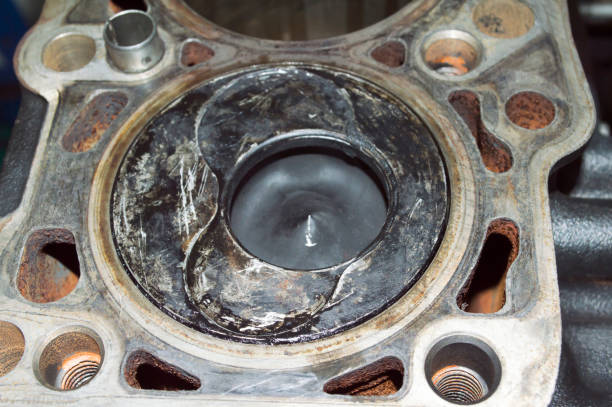What Causes The Blown Head Gasket?


Perhaps you notice some white smoke coming from the exhaust pipe as driving, or perhaps your car is feeling slow or unpowered. You take your vehicle to a repair shop and the technician tells you that you have head gasket problems how to fix a blown head gasket. Many people know that the head gasket is an essential component in their vehicle's engine, but not as many know exactly what it does and the reasons it may fail. Learn more about the function and consequences of a blowing head gasket.
What does the head gasket perform?
The engine can be split into two parts. The crankshaft, pistons and connecting rods are located on the lower part of the engine. These parts are housed inside the engine block. They supply power and torque to both the transmission and the wheels.
The "top portion" is the cylinder head. The head contains the camshaft(s) as well as valves, spark plugs, and ports which allow fresh air into the engine to exit it. The spark plugs and valves help to produce the necessary combustion to power your vehicle.
The head gasket functions as a barrier between motor's bottom and cylinder head. It seals off the combustion in each cylinder and maintains compression. Additionally the head gasket stops oil and coolant from mixing. It acts as a barrier between the coolant channels which are a part of the engine block and the oil contained in the rotating part.
What causes a headgasket to fail?
In general, head gaskets are fairly durable and, typically they last for well over 100,000 miles. That being said, some situations can trigger the head gasket to fail prematurely.
Overheating
Overheating the engine is the most common reason for an blown head gasket cost. When an engine becomes too heated, the gasket gets exposed to temperatures beyond the limits it is designed to handle. In Head Gasket Replacement Cost , the gasket can fail. Overheating can cause cracking or warping within the block of an engine or cylinder head, which can prevent head gaskets to seal properly.
Detonation and pre-ignition
Both pre-ignition and detonation can cause premature head gasket rupture. These conditions can cause high temperatures and pressure to build up inside the cylinder. This can put a great strain on the gasket and the valves. Keep in mind that pre-ignition takes place before the spark plug fires, and detonation occurs immediately after.
Abrupt temperature changes
The head gasket expands and contracts depending on the temperature of the engine. If you start your engine cold , and then put your foot down to accelerate, the shock from the abrupt temperature shift could result in a failure of the head gasket. Failure of the head gasket can be avoided by allowing the car to reach the proper operating temperature before you accelerate quickly.
Age and mileage are high.
Gaskets can wear out. Gaskets are prone to be damaged by wear and tear. Gasket materials may become less durable over time, and they may not be able to seal in the same way. Manufacturers suggest a head gasket replacement once a car hits the mileage limit. Head gasket failure is more likely when you exceed the mileage.
Incorrect installation
It's very unlikely that the gasket in the head will hold a seal in the event that it's been incorrectly replaced. There could be an error in the process of installing the head gasket.
